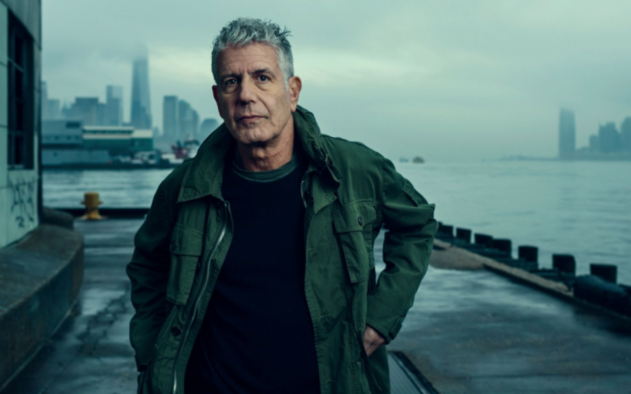We know they fought hard. We know they died. We aren’t entitled to anymore information than that.
Anthony Bourdain. Kate Spade. Two beloved celebrities lost to suicide, and two deaths covered non-stop by the media.
I won’t share the details of either death but a quick perusal of the news reveals every suicide coverage mistake: details about how they died, quotes from Spade’s suicide note, stories that examine their deaths but fail to provide information about suicide prevention resources to save others’ lives.
We know suicide contagion is real. We know how to write responsibly about suicide, but we aren’t doing it. And every time I read one of these articles, I wonder who else is reading it and hope to god they aren’t on the brink. I hope that learning we’ve lost yet another life to suicide won’t leave them feeling as hopeless as I feel.
My son’s first hospitalization for suicidal thoughts was the first week of his sophomore year of high school. It was the second time one of his friends told me he was talking about suicide, but the first time I thought he might really do it.
I took my son to the hospital because that’s what you do when someone’s life is in danger. You panic and rush them in to see doctors you believe can help them. But there wasn’t much help to be found in the psychiatric wing of our local children’s hospital. Just forced medication and a bedroom so devoid of potential weapons that it looked more like a prison cell.
Still, I told myself I’d done the right thing by bringing him there. He was in crisis. He needed help.
I still believed depression and suicidal thoughts were something he’d “get over” with the right med or the right therapy. So when it happened again, I was devastated. We’d done everything right. We shouldn’t have ended up right back where we started.
During the worst of my son’s depression, I wrote. I wrote because that’s what I do. It’s how I process difficult experiences. I interviewed other parents of suicidal teens and I gathered resources so other parents wouldn’t feel as alone as I did.
It was a noble undertaking and a terrible idea. As other parents shared stories of their children’s repeated crises, my fear grew. They opened up to me and I was grateful for that, but there’s no disputing the fact that their words left me feeling hopeless. Some of their kids had been stable for years before attempting suicide again. If their kids could go years between crises, how could I ever feel like my son was safe again?
My son is a senior now. He’s graduating soon, an accomplishment that once felt impossible. I’ve been thinking back to those dark days and congratulating both of us for surviving them. I’ve let myself try to forget those cautionary tales from other parents. I’ve let myself believe my son is OK.
When I heard about Kate Spade’s death, that veneer vanished. Her death touched the same chord as Robin Williams’ death and now Anthony Bourdain’s. If they can’t make it out, even with access to the best care out there and all the money in the world to fund their treatment, how do I know my son will? If they can’t make it out in their 50s and 60s, will this ever really end?
My son is in a good place. He talks about his depression now like an old unwelcome friend. He’s good now, he tells me, and I do my best to believe him because it’s the only way I can keep putting one foot in front of the other. It’s the only way I can subdue the fear enough to push him to go to school or get a job.
But the tragic losses of Spade and Bourdain changed that. My son may be in a good place now but will he be in a good place next month, next year or even a decade from now? There’s no such thing as a guarantee for any of us, but these losses make me feel like we’re living on borrowed time.
And as a writer, I can’t help but think we all bear some of the culpability. We’ve let the public’s “right to know” turn venerable institutions into gossip magazines, and we’ve neglected our duty to think critically about what we cover and how we cover it. We have a duty to our readers and we’re failing them.
None of us need to know how Spade and Bourdain died. We don’t need to dissect every detail of their lives looking for the cause. We know they fought hard. We know they died. We aren’t entitled to anymore information than that.
It’s been three years since I wrote about my son’s suicidal thoughts. I still get emails from parents who found my essay when they needed it. This week, I’ve received two. My son may be doing better now, but there are countless people still in the trenches.
There will be other deaths. And when they happen, we owe it to our readers to be their allies, not their ammunition.
If you or someone you know may be considering suicide, contact the National Suicide Prevention Lifeline at 1-800-273-8255 or the Crisis Text Line by texting 741741.
Jody Allard is a former techie-turned-freelance-writer living in Seattle. She can be reached through her website, on Twitter or via her Facebook page.
Other Links:

